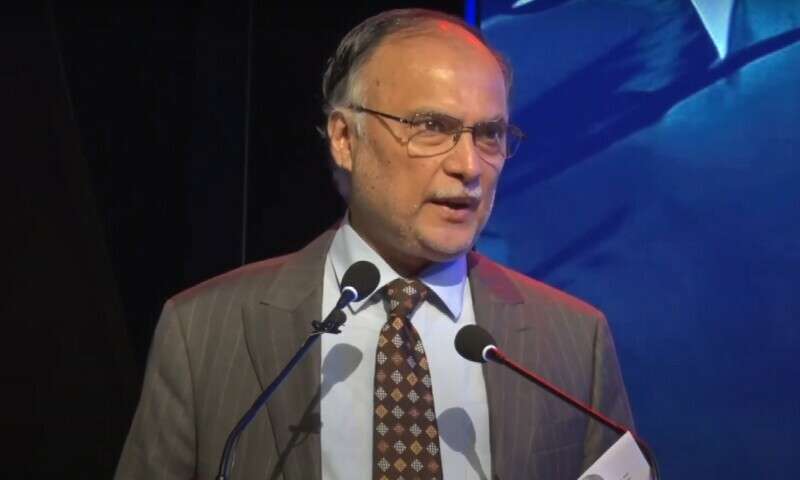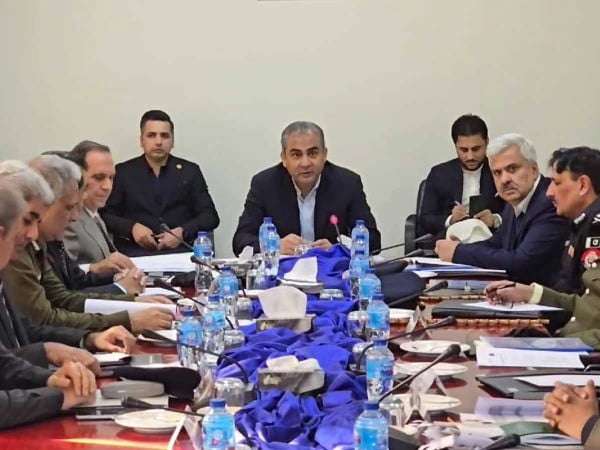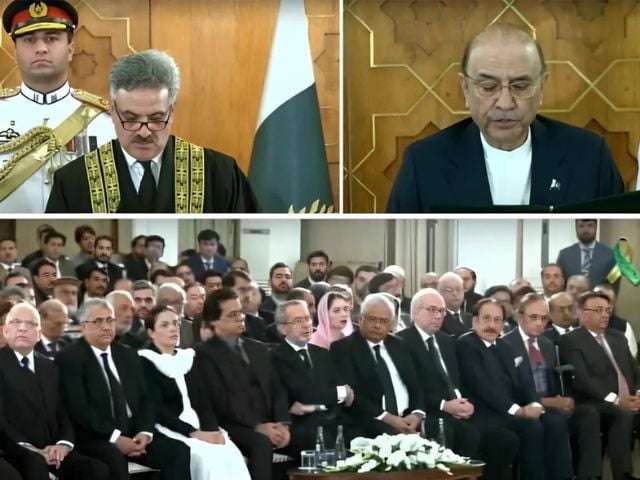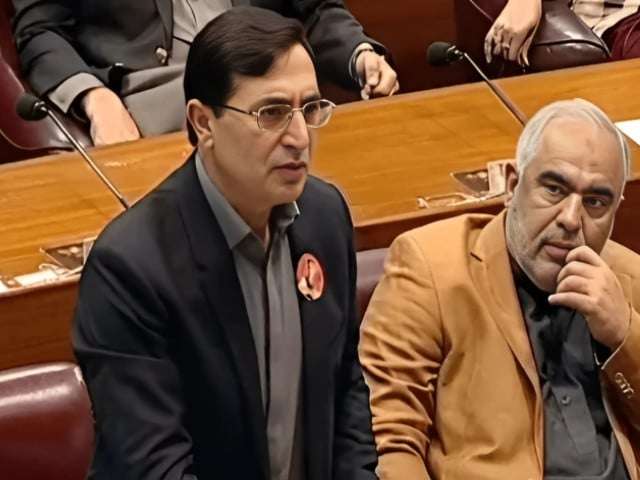Introduction
Planning Minister Ahsan Iqbal has highlighted a “unique” opportunity to rejuvenate the partnership between the United States and Pakistan with the incoming administration of US President-elect Donald Trump. This article explores the potential for renewed relations and collaborative opportunities between the two nations.
1. Historical Context and Election Outcome
Trump’s Historic Win
Donald Trump, the 78-year-old President-elect, won the White House with 291 electoral college votes against Kamala Harris’ 223. This victory makes him the second man in US history, after Grover Cleveland, to win two non-consecutive terms. Trump also led Harris by over five million votes in the popular count.
The Foreign Office’s Position
Earlier this month, Pakistan’s Foreign Office emphasized that ‘non-interference’ should be the cornerstone of Pakistan-US ties. The office expressed hope for a strengthened relationship under the new Trump administration.
2. Ahsan Iqbal’s Vision for Revitalized Ties
Addressing the USAID Event
Speaking at a US Agency for International Development (USAID) event in Islamabad, Planning Minister Ahsan Iqbal remarked on the potential for enhanced ties with the new US administration. He stated, “With the new US administration taking the helm, we have a unique opportunity to revitalize our partnership and adapt it to the needs of a rapidly changing world.”
Shared Challenges and Opportunities
Iqbal emphasized that a renewed era of collaboration could address shared challenges and create new opportunities for growth and mutual prosperity. He called for deeper ties in key areas to achieve transformative outcomes.
3. Areas for Collaborative Research and Development
Renewable Energy and Sustainable Agriculture
Iqbal highlighted the need for collaborative research in renewable energy and sustainable agriculture. These efforts would help build a more resilient future for both nations.
Modern Infrastructure
The minister also stressed the importance of modern infrastructure projects, which could benefit from US expertise and investment.
4. Engaging the Pakistani Diaspora
Strengthening Cultural, Academic, and Economic Ties
Iqbal underscored the need to engage the Pakistani diaspora in the US to strengthen cultural, academic, and economic ties between the two countries. This engagement could foster a deeper understanding and cooperation.
5. Strategic Importance of Pakistan
Regional Connectivity and Economic Integration
With its strategic location at the crossroads of South Asia, Central Asia, and the Middle East, Pakistan is a natural partner for the US in promoting regional connectivity and economic integration, according to Iqbal.
Contributions to Infrastructure Projects
Iqbal noted the significant contributions of the US to Pakistan’s infrastructure projects. These contributions reflect the enduring strategic importance of the bilateral relationship and outline a roadmap for future cooperation under the new leadership.
6. Evolution of US-Pakistan Relations
From Defense Cooperation to Development Partnership
The planning minister highlighted the historical foundation of US-Pakistan relations, which began with defense cooperation and evolved into a robust development partnership. He stressed the importance of fostering a new dimension of collaboration focused on education, infrastructure, and economic development to address emerging global challenges.
7. Infrastructure and Development Projects
Transformational Impact
Iqbal lauded the transformational impact of US-supported infrastructure projects in Pakistan. He cited the Mangla and Tarbela dams as lifelines for the agriculture and energy sectors.
Healthcare, Education, and Transportation Initiatives
He also mentioned US-funded initiatives in healthcare, education, and transportation, which have significantly improved the quality of life for millions of Pakistanis.
8. Long-term Sustainable Growth
Laying the Foundation
Iqbal viewed these projects as addressing Pakistan’s immediate needs while laying the foundation for long-term sustainable growth.
US-Pakistan Knowledge Corridor
The minister recalled the US-Pakistan Knowledge Corridor, describing it as a critical initiative to strengthen academic and research collaborations.
Fulbright Scholarship Programme
He acknowledged the Fulbright Scholarship programme, the largest in the world for Pakistan, as a transformative opportunity that empowered thousands of Pakistanis to contribute meaningfully to national progress.
9. Expanding Bilateral Trade
Current Trade Relations
Iqbal underscored the potential for expanding bilateral trade, which exceeded $6.5 billion in 2023. He called for enhanced market access and joint ventures in key sectors such as information technology, agriculture, and manufacturing.
Key Exports and Economic Contributions
He highlighted that Pakistan’s key exports, including textiles, surgical instruments, and IT services, contribute significantly to the economy.
Trade Relations and Job Creation
Iqbal emphasized that trade relations would create jobs and drive innovation, noting the vast untapped potential for trade growth.
Overcoming Trade Barriers
He said the two countries could build a stronger and mutually beneficial economic partnership by tackling trade barriers and promoting joint ventures.
10. Respecting Sovereignty and Constructive Cooperation
Flourishing Bilateral Relations
The planning minister pointed out that while bilateral relations had flourished, both nations needed to respect each other’s sovereignty and work together constructively to address shared challenges.
Critical Relationship for Global Challenges
Iqbal asserted that the Pakistan-US relationship remains critical to addressing global challenges and achieving regional stability.
FAQs
1. What are the key areas for collaboration between Pakistan and the US under the new Trump administration?
Key areas for collaboration include renewable energy, sustainable agriculture, modern infrastructure, education, and economic development.
2. How has the US contributed to Pakistan’s infrastructure development?
The US has significantly contributed to Pakistan’s infrastructure development through projects like the Mangla and Tarbela dams and initiatives in healthcare, education, and transportation.
3. What is the potential for expanding bilateral trade between Pakistan and the US?
There is significant potential for expanding bilateral trade, particularly in sectors like information technology, agriculture, and manufacturing, with current trade exceeding $6.5 billion in 2023.
4. How can the Pakistani diaspora in the US contribute to strengthening bilateral ties?
The Pakistani diaspora in the US can strengthen bilateral ties by fostering cultural, academic, and economic connections, contributing to mutual understanding and cooperation.
5. Why is the Pakistan-US relationship considered critical for addressing global challenges?
The Pakistan-US relationship is critical for addressing global challenges due to Pakistan’s strategic location and the potential for collaboration in areas like regional connectivity, economic integration, and addressing emerging global issues.
Conclusion
The incoming Trump administration presents a unique opportunity to revitalize and adapt the Pakistan-US partnership to meet the needs of a rapidly changing world. Through collaborative efforts in renewable energy, sustainable agriculture, infrastructure, and more, both nations can address shared challenges and create new opportunities for growth and prosperity. The engagement of the Pakistani diaspora and respect for each other’s sovereignty will be essential in fostering a stronger, mutually beneficial relationship.
ALSO READ:
https://flarenews.pk/2024/11/18/honor-300-series-first-live-look-emerges/



